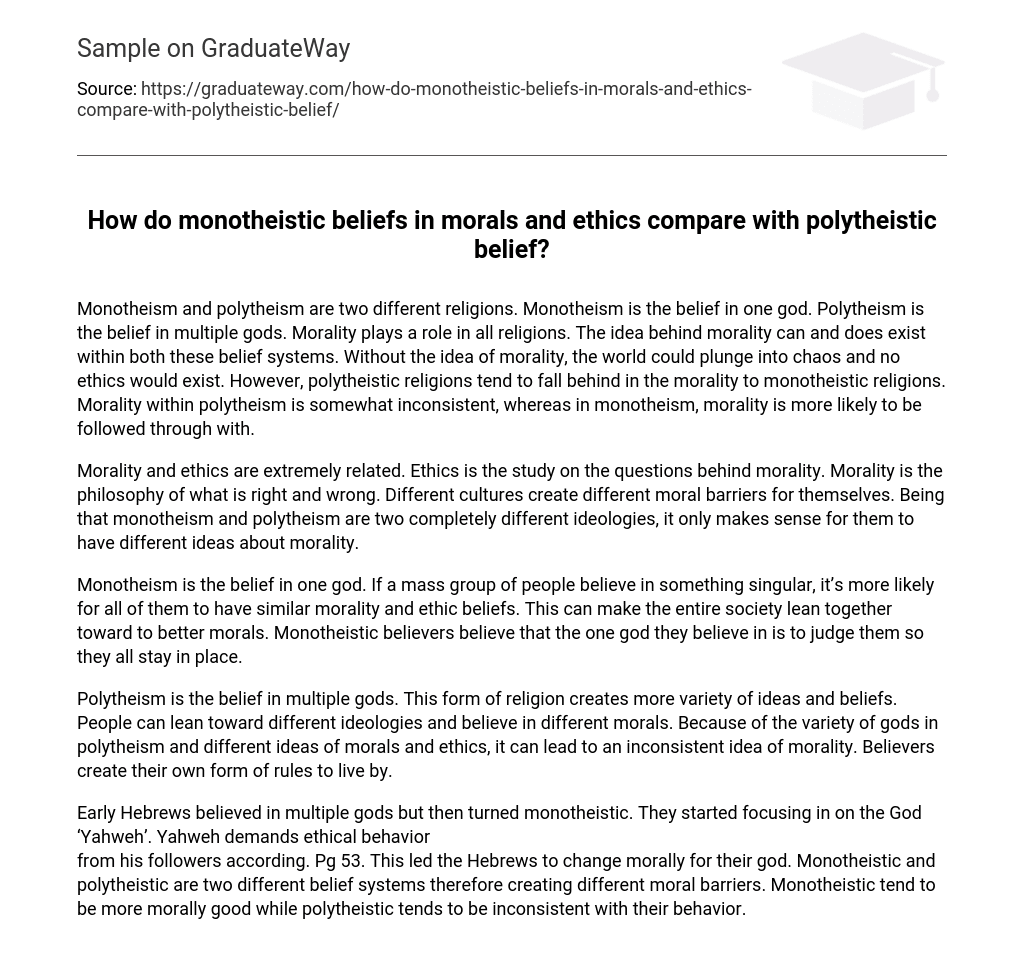Monotheism and polytheism are contrasting religious beliefs. Monotheism centers around the belief in a singular god, whereas polytheism embraces multiple gods. Both faiths acknowledge the significance of morality. The absence of morality would result in a disorderly world where ethics are ignored. Nevertheless, monotheistic religions prioritize morality to a greater extent than polytheistic religions do. Morality lacks consistent definition within polytheism, while monotheism adheres more closely to moral principles.
Morality and ethics are closely connected as ethics involves analyzing moral inquiries while morality focuses on philosophically determining right and wrong. Various cultures establish unique moral boundaries, with monotheism and polytheism, two distinct belief systems, naturally holding different viewpoints on morality.
Monotheism, the belief in a single god, often leads to followers sharing a common moral and ethical system. This shared devotion to one belief can foster a cohesive society with strengthened moral values. Those who practice monotheistic religions have faith that their chosen deity will serve as their ultimate judge, ensuring compliance with the established moral code.
Polytheism, the belief in multiple gods, encourages diverse ideologies and moral convictions, leading to a wide range of ideas and beliefs. With many gods and different interpretations of ethics and morality in polytheistic religions, there may not be a unified moral framework. As a result, followers of this belief system create their own guiding principles for how they live.
The early Hebrews initially believed in multiple gods, but later transitioned to a monotheistic belief system centered around the deity known as ‘Yahweh’. As stated on page 53, Yahweh requires his worshippers to adhere to ethical conduct. This emphasis on morality caused a change in the Hebrews’ ethical behavior for the sake of their god. It is important to note that monotheistic and polytheistic belief systems have distinct moral boundaries, resulting in different behavioral patterns. In general, monotheistic beliefs tend to be more aligned with moral goodness, while polytheistic beliefs often exhibit inconsistent behavior.





